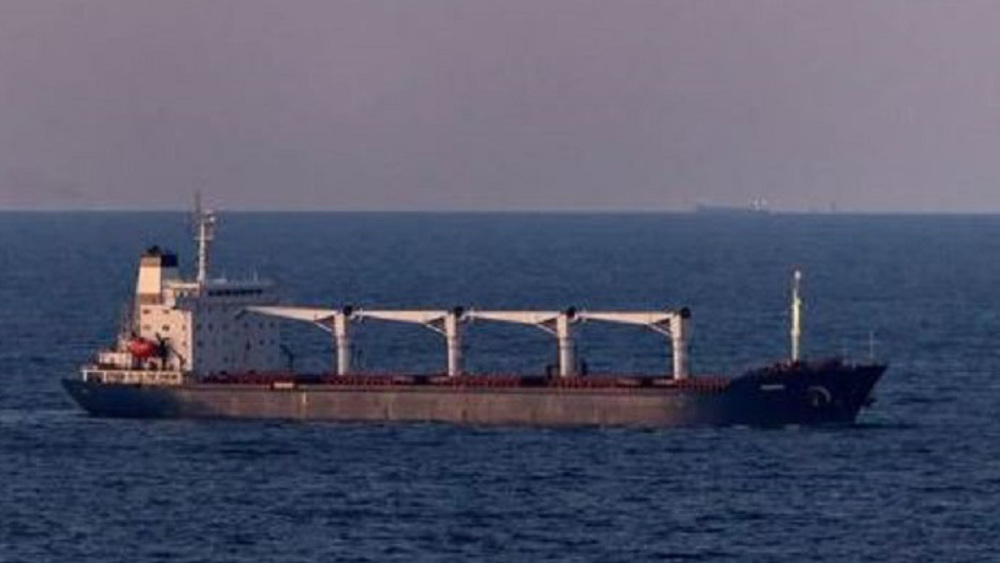More bulk carriers of Ukrainian grain set sail amid war with Russia
Four bulk carriers loaded with almost 170,000 tonnes of Ukrainian agricultural products have sailed from Ukraine’s Black Sea ports as part of a deal to unblock the country’s sea exports, Ukrainian and Turkish officials say.
The war in Ukraine began on February 24. It has resulted in a de-facto blockade of the Black Sea, which has led to Ukraine’s exports dropping to one-sixth of their pre-war level.
Last month, the United Nations World Food Program warned some 47 million people were in a stage of “acute hunger.”
Experts have warned in case of continuous blockage of Ukrainian grain exports, likely outbreaks of famine are imminent.
Ukraine, Russia, Turkey, and the UN signed agreements last month to create a maritime corridor to make the safe departure of Ukrainian bulkers. Personnel from Ukraine, Russia, Turkey, and the UN oversee the resumption of grain exports in Istanbul under the framework of a Joint Coordination Center (JCC).
The Turkish Defense Ministry says three cargo ships that recently left Ukrainian ports are transporting more than 171,000 tonnes of corn combined.
The JCC has said the Panama-flagged Navi Star, which is carrying 33,000 tonnes of grain to Ireland, completed its inspection and was preparing to sail.
Ukraine’s Minister of Infrastructure Oleksandr Kubrakov said in a post on Facebook on Sunday, “We are gradually moving on to larger volumes of work. We plan to ensure the ability of the ports to handle at least 100 vessels per month soon.”
Ukraine, the world’s fourth-largest grain exporter, normally produces 42% of the world's sunflower oil, 16% of its maize, and 9% of its wheat. Before the war, Ukraine sent over 90% of its food exports by sea.
The African Development Bank says Ukraine and Russia usually supply over 40% of Africa's wheat. However, the war has led to a shortage of 30 million tonnes of food in Africa and consequently a 40% rise in food prices across the continent.
Nigeria, Yemen, and Syria, major importers of Ukraine’s agricultural products, have faced sharp price hikes –between 25 to 50 percent – in bread, flour, pasta, and wheat.
Laura Wellesley, a food security specialist at the British think tank Chatham House, says unless a considerable amount of Ukraine's grain is shipped, many countries in West Asia and Africa will go short. As much as 30% of the 86 miillon tonnes of grain Ukraine normally produces will not be harvested, according to Wellesley. “This would push up the price of bread within those countries even further, which would cause a great deal of social unrest.”
Mother’s Day: Sareh Javanmardi’s inspiring journey as Paralympic champion and mother
Russia downs over 40 Ukrainian drones as Putin vows 'destruction' on Kiev
VIDEO | Yemen: A bone in Israeli neck
D-8’s role in Iran’s economy after Cairo summit
China slams US as ‘war-addicted’ threat to global security
China ‘firmly opposes’ US military aid to Taiwan
VIDEO | Press TV's News Headlines
President Yoon Suk Yeol to be removed from office













 This makes it easy to access the Press TV website
This makes it easy to access the Press TV website